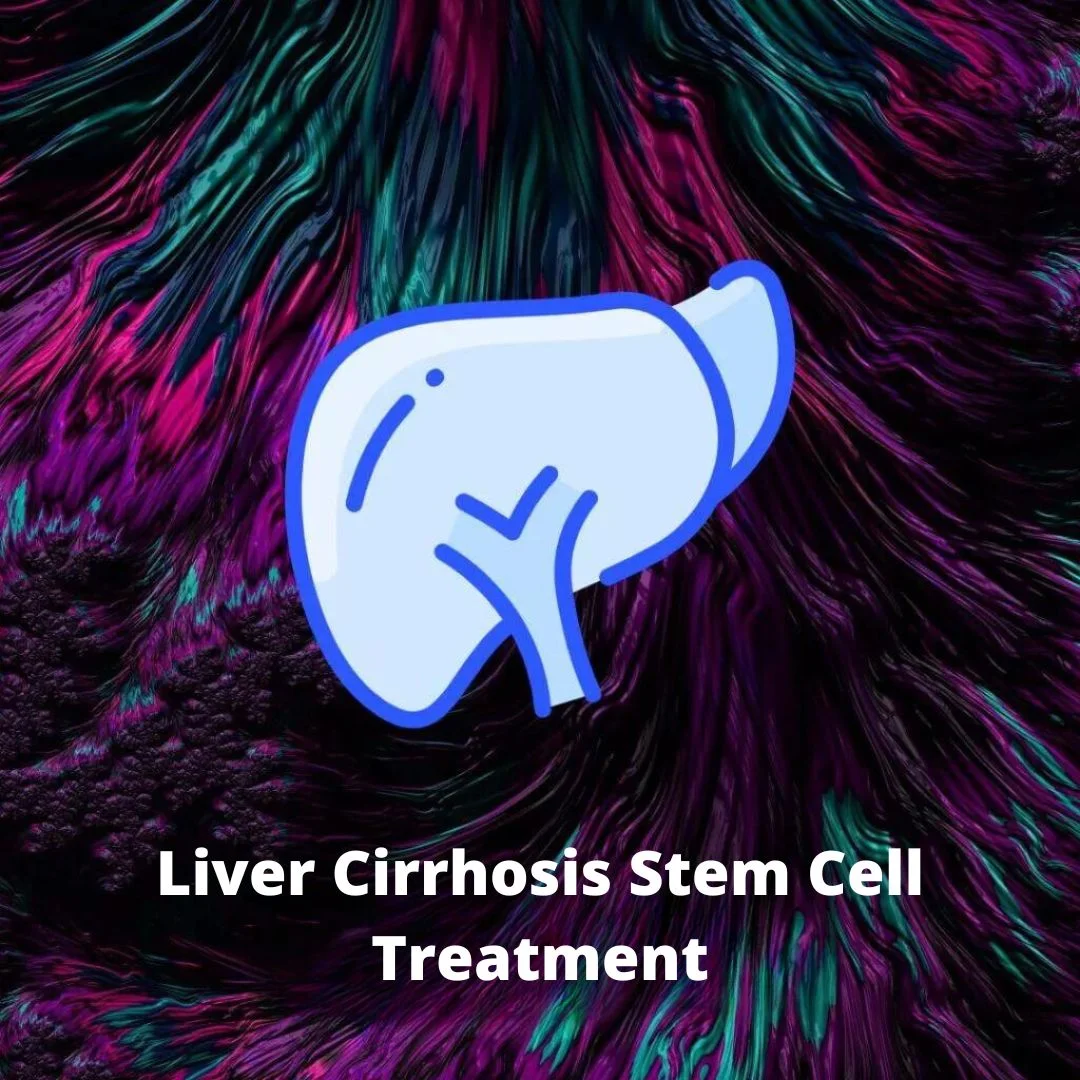Liver Cirrhosis Stem Cell Treatment at Dream Body Clinic
The Liver Cirrhosis Stem Cell Treatment offered at Dream Body Clinic holds promising potential for addressing a range of liver conditions, including:
- Non-alcoholic fatty liver disease (NAFLD)
- Alcoholic liver disease (ALD)
- Liver fibrosis
- Cirrhosis
- Hepatitis C or B virus-induced liver damage
- Primary biliary cirrhosis
- Primary sclerosing cholangitis
- Autoimmune hepatitis.
Harnessing the Regenerative Power of Mesenchymal Stem Cells for Liver Healing
The regenerative capabilities of mesenchymal stem cells (MSCs) play a pivotal role in repairing damaged liver tissue and promoting recovery. MSCs exhibit the capacity to guide the differentiation and regeneration of diverse cell types, such as hepatocytes, cholangiocytes, and bile duct cells. This capacity is vital for the restoration and healing of the liver.
Upon administration, MSCs migrate to the site of injury, releasing an array of growth factors, anti-inflammatory cytokines, and extracellular matrix proteins. These substances create an optimal microenvironment that nurtures the regeneration and restoration of liver cells.
The Therapeutic Mechanisms of Mesenchymal Stem Cells for Liver Cirrhosis Treatment:
- Stimulation of liver cell regeneration: MSCs can differentiate into various liver cell types like hepatocytes and cholangiocytes. This capability supports the regeneration and repair of damaged liver tissue, thus reinstating proper liver function.
- Inhibition of inflammation: MSCs possess immunomodulatory traits that suppress harmful immune responses and alleviate inflammation stemming from liver conditions.
- Suppression of liver fibrosis: MSCs hold the potential to inhibit the activation of liver stellate cells, pivotal players in liver fibrosis. This inhibition curtails the progression of fibrosis, enhancing overall liver function.
- Immune response modulation: MSCs exert influence on immune cell function, curbing immune responses linked to liver disease. This modulation safeguards the liver from further harm, expediting its regeneration and repair.
- Augmentation of liver cell viability: By secreting growth factors, cytokines, and extracellular matrix proteins, MSCs enhance the survival of liver cells. This dynamic microenvironment bolsters liver cell survival and facilitates regeneration.
- Synergy with liver cell transplantation: MSCs can be utilized alongside liver cell transplantation to amplify its efficacy and outcomes.
- Reduction of oxidative stress: MSCs mitigate oxidative stress, a common hallmark of liver disease contributing to cell damage and inflammation.
- Counteracting Liver Cirrhosis by Inhibiting Liver Stellate Cells Activation: Crucially, MSCs hold the potential to thwart the activation of liver stellate cells, the culprits behind liver fibrosis.
Empowering Hepatocytes in the Context of Liver Cirrhosis
Hepatocytes, pivotal in liver regeneration, receive a boost from MSCs:
- Proliferation promotion: MSCs encourage hepatocyte proliferation, facilitating the growth of new, healthy liver cells to replace damaged ones.
- Enhanced liver function: MSCs secrete growth factors and cytokines that bolster liver function, empowering hepatocytes to perform metabolic and excretory functions optimally.
- Regeneration stimulation: MSCs spark liver tissue regeneration, mobilizing other stem cells and facilitating new blood vessel formation.
- Inflammation reduction: MSCs alleviate liver inflammation, safeguarding hepatocytes from further damage.
- Protection against oxidative stress: MSCs shield hepatocytes from oxidative stress, a hallmark of liver disease triggering cell damage and inflammation.
Fostering Cholangiocytes Recovery in Liver Cirrhosis
Cholangiocytes, specialized epithelial cells lining bile ducts, can experience rejuvenation via MSCs:
- Survival, proliferation, and differentiation promotion: MSCs foster cholangiocyte survival, proliferation, and differentiation by releasing factors like hepatocyte growth factor (HGF) and insulin-like growth factor (IGF-1).
- Immune response modulation: MSCs’ immune response modulation shields cholangiocytes from inflammation and immune damage contributing to disease.
MSCs as Inhibitors of Liver Fibrosis:
MSCs actively combat liver fibrosis through multifaceted mechanisms like immune response modulation, inflammation reduction, and matrix remodeling. This concerted effort suppresses hepatic stellate cell activation, central to fibrosis development.
Stemming the Tide of Liver Cirrhosis with MSCs
MSCs possess the potential to foster liver healing by:
- Differentiation into liver cells
- Anti-inflammatory actions
- Immunomodulation effects
- Antioxidant properties
These mechanisms collectively address fatty liver disease and cirrhosis.
Liver Failure Stem Cell Studies
- Stem cells: a potential treatment option for liver diseases
- Therapeutic Potential of Umbilical Cord Stem Cells for Liver Regeneration
- Mesenchymal stem cell therapy for liver fibrosis
- The therapeutic promise of mesenchymal stem cells for liver restoration
- Improvement of liver function in liver cirrhosis patients after autologous mesenchymal stem cell injection: a phase I–II clinical trial
- Liver-specific gene expression in mesenchymal stem cells is induced by liver cells
- Antioxidant-upregulated mesenchymal stem cells reduce inflammation and improve fatty liver disease in diet-induced obesity
- Bone marrow derived-mesenchymal stem cell improves diabetes-associated fatty liver via mitochondria transformation in mice
- Mechanisms of Action of Mesenchymal Stem Cells in Metabolic-Associated Fatty Liver Disease
- Human umbilical cord-derived mesenchymal stem cell therapy ameliorates nonalcoholic fatty liver disease in obese type 2 diabetic mice
Managing Risks and Side Effects of Liver Cirrhosis Stem Cell Treatment
While minimal side effects have been observed, including transient fever or headache, sterility protocols minimize infection risk. Patients with cancer history within 5 years aren’t treated as a safety precaution. Dream Body Clinic’s expertise and safety record assure confidence in the treatment.
Our lab has over 8 years of experience cultivating mesenchymal stem cells with perfect safety and efficacy. See Stem Cell Certification by Clicking Here
Sustained Results of Liver Cirrhosis Stem Cell Treatment:
The enduring results of this treatment are underpinned by genuine cellular regeneration. Stem cells create new liver tissue, offering lasting improvement. The MSCs’ presence in the body for up to a year influences immune system reprogramming and cellular regeneration. This treatment affords a chance for the body to heal as it did during childhood.
Procuring Liver Cirrhosis Stem Cell Treatment:
In summation, the Liver Cirrhosis Stem Cell Treatment holds promise for those afflicted by this condition. Dream Body Clinic customizes stem cell-based treatment plans, fostering liver tissue repair and regeneration. While the treatment isn’t universally available yet, ongoing research suggests it could become a viable alternative for conventional liver disease management. To learn more or schedule treatment, call us at (833) 445-9089.

